South Africa’s NSPCA (National Council of SPCAs) has revealed its shocking findings of “unjustified exploitation” at yet another lion farm, following a joint inspection it conducted in the Free State with Environmental Management Inspectors from DESTEA.
The NSPCA said in a statement today that the inspection of the lion breeding farm was carried out on 3 August 2021, and tragically “matched that of an old familiar scene NSPCA Inspectors are familiar with regarding lion farming”.
Harrowing findings on Free State lion breeding farm
Blood Lions, which has campaigned to end ‘canned hunting’ and exploitative breeding of lions, described the findings as “harrowing”.
The following are just some of the shocking and upsetting discoveries made by the NSPCA on the farm that were in contravention of the Animals Protection Act No. 71 of 1962:
- Four lions were found with various physical and/or other health conditions of which no veterinary treatment and care had been procured for the animals;
Ten lions did not have access to drinking water at all; - Seventeen lions had access to unhygienic drinking water;
- Several enclosures housing lions were found in an unhygienic state with an accumulation of fresh and calcified faeces as well as decomposing food and bones;
- Several animals did not have access to shelter to protect them from inclement weather conditions;
- Several lions were kept in overcrowded conditions;
- Several lions were infested with external parasites;
- Thirteen lion carcasses were discovered within a locked freezer container. The lion carcasses were stored together with the lion food supply; and
- The freezer container was found in an unhygienic state with blood and old rotten meat on the floor.
- Iconic African lion reduced to exploited farmed animal
The photo on the right (below) shows three of the 13 carcasses that were found. The NSPCA said:
“The photograph is a harsh representative of what the iconic African lion has been reduced to – unjustified commercial exploitation of captive bred and farmed lions,” said the NSPCA.”
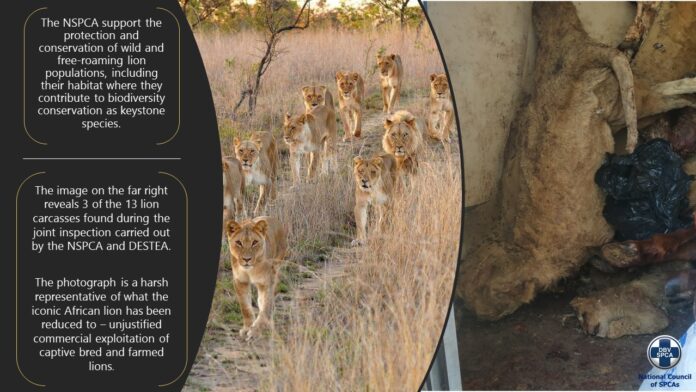
The NSPCA said that due to existing animal welfare concerns found at the lion breeding farm, its concern over the lion carcasses is not only based on how these lions were kept while alive but also, how they died.
“… BELIEVE THE (LIONS’) DEATHS WERE NOT NATURAL”
“The NSPCA has reasonable cause to believe the deaths were not natural. Considering our suspicions, 7 of the 13 carcasses were seized in terms of our warrant conditions and were sent for full post-mortem analysis and report,” said the organisation.
The NSPCA pointed out that:
“The African lion is one of the most loved and iconic animals of the world, making them one of the biggest drawcards for travellers to Africa. However, most of South Africa’s lions are held in captivity and reduced to basically an intensively bred farmed animal that is commercially exploited at every stage of their lives.”
The NSPCA is in the process of extended investigations, including gathering further evidence to ensure that justice is found for these lions.
The organisation said it welcomes the support given by DESTEA and looks forward to future collaboration efforts in the interest of improving wildlife welfare.
SA Government seeks to end captive lion breeding
In May this year, Environment Minister Barbara Creecy announced a government decision to seek to end captive breeding and the commercial use of lions. She also announced an immediate moratorium on permits to hunt captive bred lions, a ban on cub petting and a phasing out of tourist interaction with lions, as well as banning lion bone sales. It had been found that SA’s prior endorsement of canned lion hunting and lion bone sales, amongst others, posed a threat to SA’s reputation and consequently the country’s tourism.
This article was first published by SAPeople.com on 23 August 2021. Lead Image: NSPCA Makes Shocking Discoveries at Yet Another Lion Farm in South Africa. Stock Photo: Pixabay.
What you can do
Support ‘Fighting for Wildlife’ by donating as little as $1 – It only takes a minute. Thank you.
Fighting for Wildlife supports approved wildlife conservation organizations, which spend at least 80 percent of the money they raise on actual fieldwork, rather than administration and fundraising. When making a donation you can designate for which type of initiative it should be used – wildlife, oceans, forests or climate.

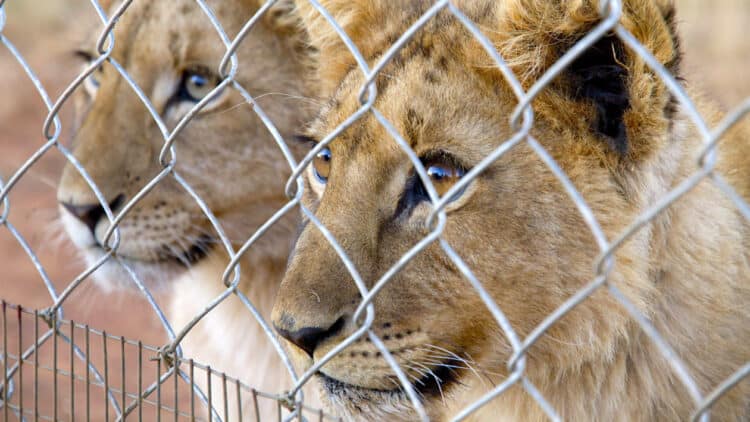

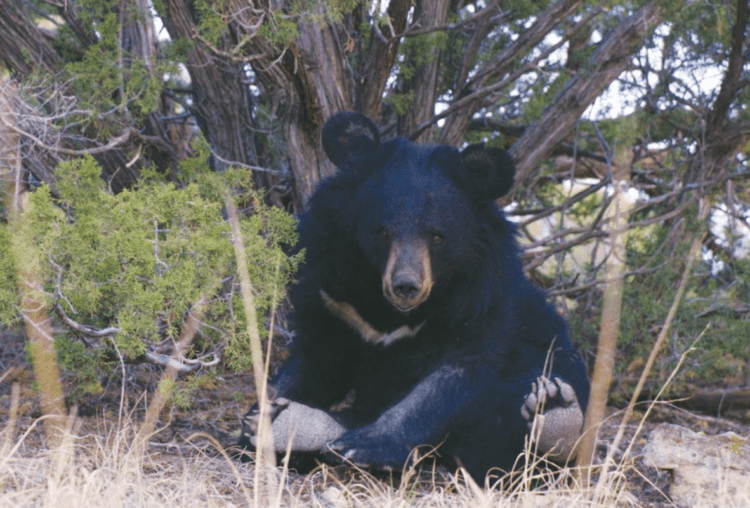
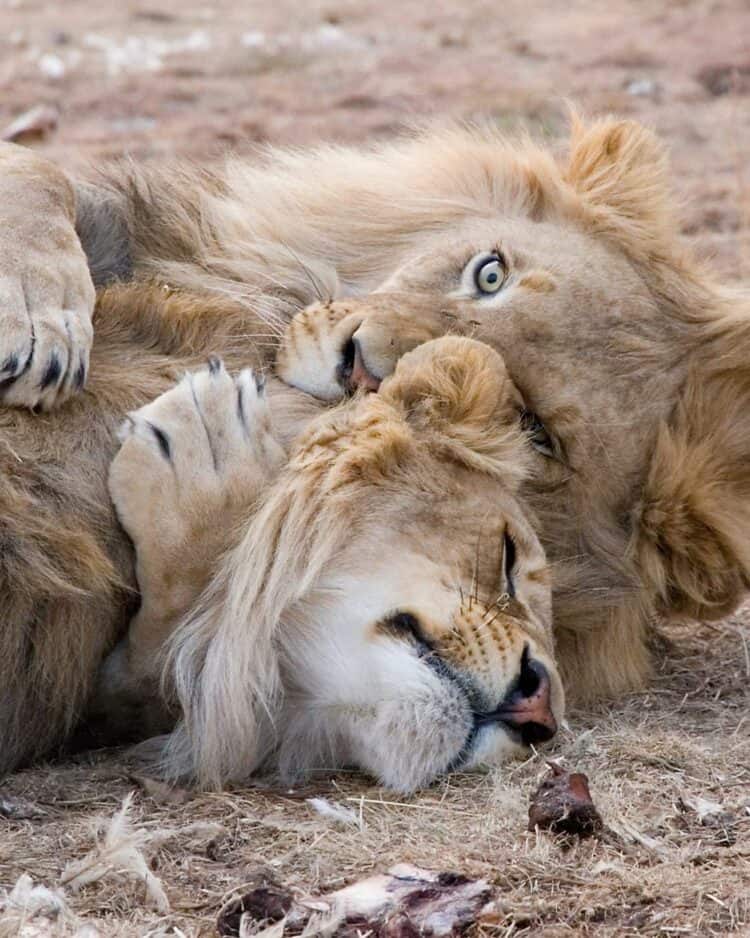
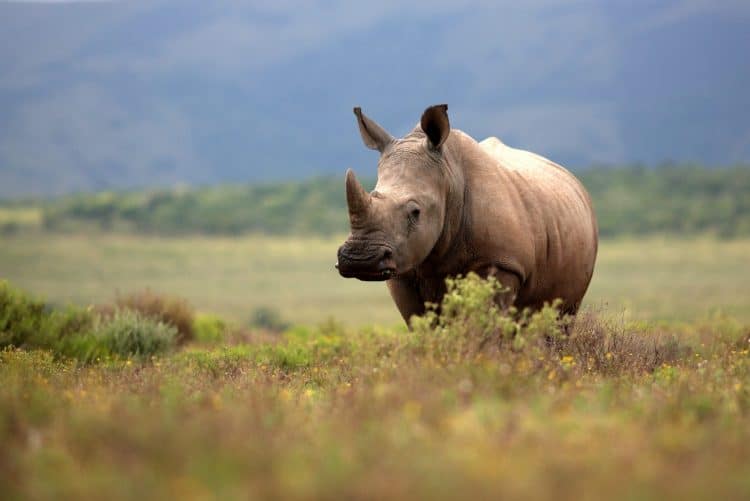
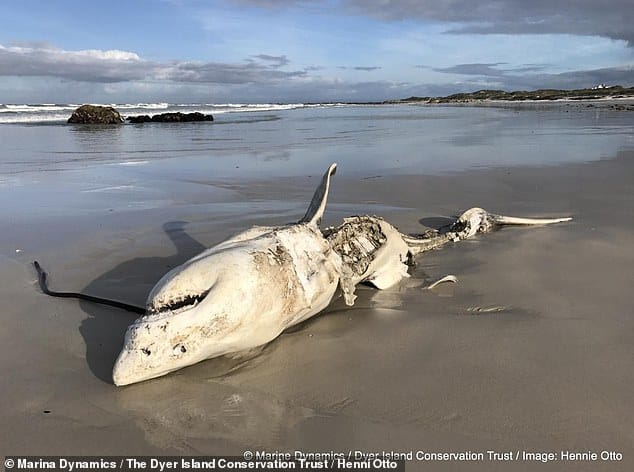
Leave a Reply